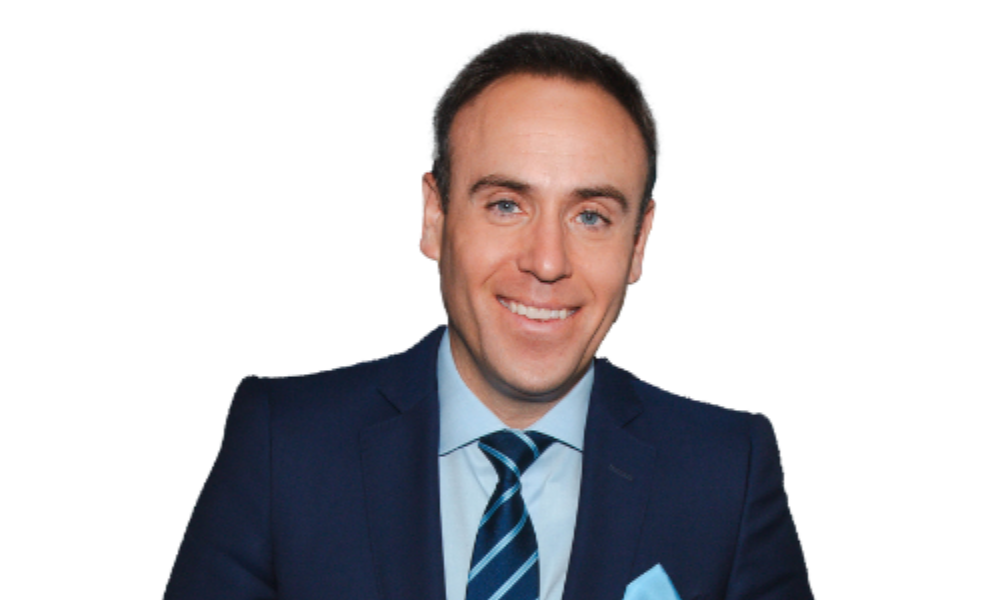Carney signals possible tariff relief while provinces clash on Canada’s next trade move with the US

Canada must prepare for an abrupt end to the current North American trade pact, Premier Doug Ford warned, stating that former US President Donald Trump could unilaterally withdraw from the Canada-United States-Mexico Agreement (CUSMA) at any time.
“He’s not waiting until 2026,” Ford said at Queen’s Park. “At any given time, President Trump… can pull the carpet out from underneath us on CUSMA tomorrow with one signature.”
As reported by BNN Bloomberg, Ford urged Ottawa to respond with immediate tariffs, tax cuts, and aggressive investment in industrial projects.
He said Trump’s trade stance “is going to come at us with double barrels,” and called for federal support on “building an aircraft carrier”-scale infrastructure project to drive demand for Canadian steel and manufacturing.
This call for retaliation came after Trump raised tariffs on non-CUSMA Canadian goods to 35 percent, citing Canada’s counter-tariffs and alleged links to fentanyl trafficking.
According to CBC, the baseline tariff took effect after the two countries missed an August 1 trade deal deadline.
However, Prime Minister Mark Carney has signalled a measured response, stating that Canada “doesn’t automatically adjust” its trade measures and may even remove tariffs where beneficial.
“We look at what we can do for our industry that’s most effective,” Carney said during a press conference in West Kelowna, as reported by Bloomberg. “In some cases, that will be to remove tariffs.”
Carney’s position has placed him at odds with Ford, who insists Canada should match US tariffs “dollar for dollar.” “They understand strength, not weakness,” Ford said during a press event in Thornhill.
Despite the high-profile rhetoric, the economic impact may be narrower than headlines suggest.
According to The Associated Press, more than 85 percent of Canada–US trade remains tariff-free under CUSMA.
Canada's central bank confirmed that 100 percent of energy exports and 95 percent of other goods met USMCA requirements, while Bloomberg noted that Carney previously exempted certain carmakers from auto tariffs to support domestic manufacturing.
Still, sector-specific duties are mounting.
As per The New York Times, steel, aluminum, and copper now face 50 percent tariffs, and autos assembled in Canada face a 25 percent tariff.
Canadian-owned Algoma Steel has begun layoffs, while General Motors Canada cut a shift at its Oshawa plant, citing “the evolving trade environment.”
In response, Carney announced a $1.2bn support package for Canada’s softwood lumber industry.
Speaking at the Gorman Bros. Lumber mill in BC, Carney called the US duties “unjustified” and said Canada must reduce its reliance on US trade.
“This dependence creates costly uncertainty,” he said. The package includes $700m in loan guarantees, $500m for product development and market diversification, and funding to retrain lumber workers.
He also confirmed the Build Canada Homes program will launch this fall, providing up to $25bn in financing to private sector builders using Canadian lumber and labour.
“We will be our own best customer,” Carney said, outlining plans to build affordable housing while reducing foreign dependency.
Some provinces support Carney’s restraint.
Saskatchewan Premier Scott Moe urged the federal government to reconsider its counter-tariffs, suggesting some were harming domestic businesses more than US targets.
“Maybe it’s time for Canada even to… consider removing some of the counter-tariffs that are harmful to Canadian businesses,” Moe said on radio, adding that CUSMA still shields large parts of the economy.
British Columbia Premier David Eby expressed concern that further retaliation could hurt BC businesses due to their reliance on US-sourced steel and aluminum.
As reported by Bloomberg, he argued that importing materials from eastern Canadian smelters is not cost-effective for western producers.
Meanwhile, Conservative Leader Pierre Poilievre criticised Carney’s trade record, saying he failed to deliver on campaign promises.
“Mark Carney has been prime minister for over 140 days and still the tariffs are there and rising,” Poilievre said in Drumheller. “It has been elbows down and tariffs up.”
Carney, who won office on slogans like “Canada Strong” and “Elbows Up,” is now facing pressure to balance domestic economic interests with maintaining the trade relationship.
“It is clear we cannot count or fully rely on what has been our most valued trading relationship for our prosperity,” he said, as reported by The Associated Press.
Carney also confirmed he has not recently spoken with Trump but will do so “when it makes sense.”
Talks are ongoing through Trade Minister Dominic LeBlanc, US Commerce Secretary Howard Lutnick, and US Trade Representative Jamieson Greer.
Mexico, which secured a 90-day pause on tariff hikes, remains in negotiation with the US.
US Ambassador to Canada Pete Hoekstra attributed Canada’s exclusion to “the energy in the room” during talks.
Despite the uncertainty, former Deputy Prime Minister John Manley said that while the headlines are dramatic, Canada’s underlying trade fundamentals remain strong.
“There is a lot of resilience… and remember that there is no tariffs on any of our energy exports,” Manley told The Associated Press. Still, he cautioned that the risk to USMCA is “very high.”



